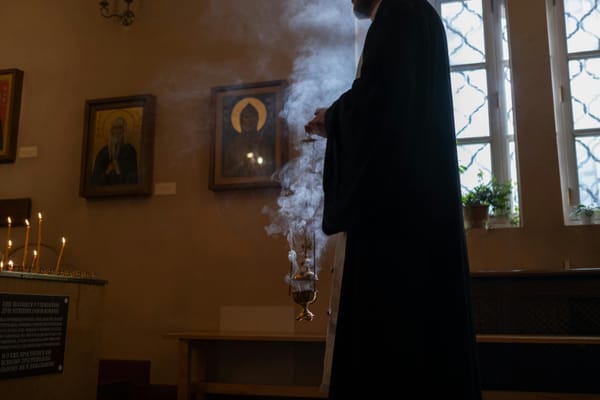Infraction vs. Infection: Rethinking Sin and Salvation
Explore the difference between Western and Orthodox views of salvation—where sin is seen not as a legal infraction, but as an infection needing healing. Discover a more holistic, grace-filled understanding of forgiveness and transformation.

I’ve been reflecting on how we talk about sin and salvation—and how much the metaphors we use shape the way we experience the gospel.
In much of the Western world, salvation tends to be framed like this: you broke the law (infraction), now you need to be forgiven or rescued from the consequences—whether that’s hell, judgment, or an angry God. That message has good intentions. It sounds hopeful to some. And I grew up hearing it through Western ears. I understand it.
But it never quite settled right for me.
I felt I was never really enough...never quite "right"
The more I leaned into that framework, the more I felt like it wasn’t enough. Not because it was too demanding, but because it left me with a low-grade anxiety.
You’re always being rescued from something—but never quite at rest.
Probably why I loved Calvinism so much... at least there was a doctrine that said I was saved once and for all... that is if I was really one of the chosen in the first place...
But what about my good friend, the Calvinist pastor and church planter who wrote a book on "living out the gospel", who later shot himself in the head...dead.
Was he "saved"? And if so, from what?
Lord, have mercy.
A Different Way to Hear "Have Mercy"
In the Orthodox tradition, sin isn’t just an infraction—it’s an infection. A condition. A state of being in need of healing. So when I say “forgive me, a sinner,” I’m not expressing fear or insecurity. I’m expressing humility. I’m naming my need. I’m asking for help—not from a judge, but from a physician.
That’s a key shift.
Mercy, in this view, isn’t just about escaping punishment. It’s about receiving healing. It’s about grace restoring what’s broken. And salvation isn’t a transaction or a legal acquittal. It’s transformation. It’s a process of becoming whole—body, mind, and soul—in Christ.
Christ the Healer
There’s a phrase used in Orthodox liturgy after Pascha: "Trampling down death by death." It captures the heart of salvation—not as rescue from God, but rescue by God from death itself. Christ didn’t come to appease wrath. He came to destroy the very thing that keeps us sick and separated: death, sin, and decay.
The early Church Fathers spoke this way often. They saw salvation as the healing of the human person. Sin distorts the image of God in us. Christ restores it. Salvation is theosis—union with God. Not fear-based insurance. Not a get-out-of-hell card. But a journey into life.
Why This Matters
I’m not trying to pick theological fights. I’m just trying to show how differently things can sound depending on the framework you’re in. What sounds like fear or uncertainty to Western ears—“Lord, have mercy”—is actually a prayer of rest in the Orthodox tradition. It’s the voice of someone who knows they need healing and trusts the One who heals.
And rest it is...
And for me, that’s been incredibly freeing.
Salvation isn’t about being saved from a wrathful God.
It’s about being made whole by a merciful one.
And that question about my friend...
The answer is yes.
Just not on this side of eternity.
God is merciful—always and forever.




